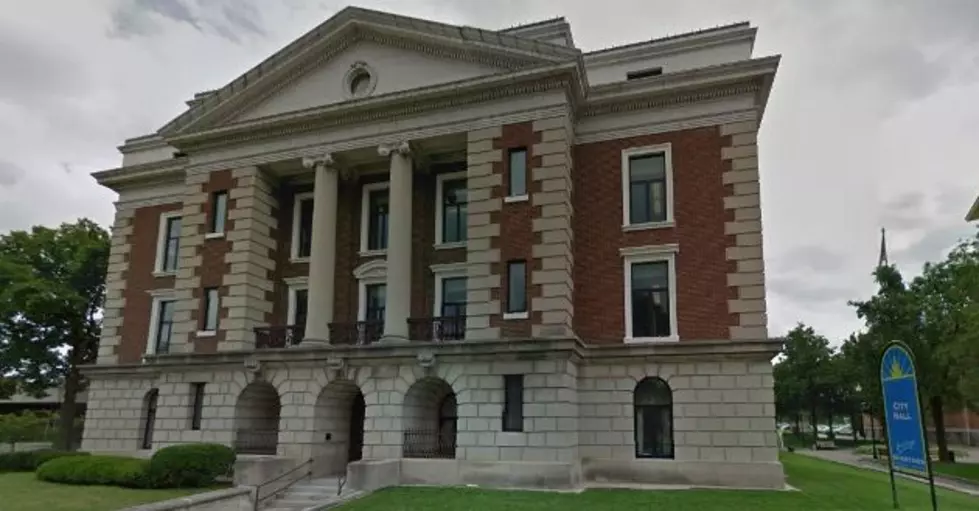
Battle Creek Panhandling Ordinance Gets Final Vote Tuesday
In less than two full weeks, the city of Battle Creek may have official ordinance language which attempts to prohibit panhandling in the city limits. The measure was motivated by so-called "aggressive" panhandling by some, causing concern for one's safety if they were to be a target.
These types of measures, legally, can be tricky. Language that is too specific is troublesome, and verbiage that is too vague is also. We spoke with a local attorney who offered some input; we also discussed it with the west Michigan-based attorney with the American Civil Liberties Union, which is closely watching the case.
A number of local officials and leaders have discussed their positions - for or against - over the last few weeks. The primary argument in favor is the potential intimidation factor; the primary argument against it centers around a perception of targeting the poor unfairly.
The following is a central hub to that coverage. The actual verbiage of the two proposed ordinances follows.
Hear The Richard Piet Show weekday mornings from 5:30-9 on WBCK.
618.33 Aggravated Solicitation of Alms, Gifts or Loans.
(a) As used in this section, to “solicit alms” means to communicate an in-person request – whether through words or conduct – to another person for a gratuitous donation to the requester of money, property, or other tangible things.
(b) It shall be unlawful for any person to solicit alms: (1) On private property if the owner, tenant, or lawful occupant has asked the person not to solicit on the property or has posted a sign clearly indicating that solicitations are not welcome on the property. (2) From any person who is waiting in line for entry to any building, public or private, including, but not limited to, any residence, business, or athletic facility; or (3) From sunset to sunrise, except on public property if the solicitor has an official license or permit to do so or on private property if the solicitor has the express knowledge and consent and/or invitation of the owner or party in control of that property to do so; (4) Within fifteen (15) feet of: i. the entrance or exit from a building, public or private, including, but not limited to, any residence, business, or athletic facility without the knowledge and consent and/or invitation of the owner or party in control of that building; ii. the outdoor seating area of any restaurant, bistro, café, ice cream shop, or bar; iii. the entrance or exit of any public toilet facility; iv. an automated teller machine, provided that when an automated teller machine is located within an automated teller machine facility, such distance shall be measured from the entrance or exit of the automated teller machine facility; v. a public transportation vehicle; or vi. a bus station, bus stop, or taxi stand.
(c) It shall be unlawful for any person to solicit alms: (1) Accosting. By approaching another person in a way that would cause a reasonable person to feel terrorized, frightened, intimidated, threatened, harassed, or molested and that actually causes the victim to feel terrorized, frightened, intimidated, threatened, harassed, or molested; or (2) Forcing oneself upon another. By continuing to solicit alms from someone after receiving a negative response from that person; by blocking that person’s passage; or by otherwise engaging in conduct which could reasonably be construed as intended to compel or force that person to accede to demands.
(d) A person who violates or fails to comply with any of the provisions of this section is guilty of a Class C Municipal civil infraction and shall be subject to the civil fines set forth in Section 202.98.
(e) This ordinance shall be interpreted and construed so as to comply with the United States Constitution and applicable laws. If any portion of this ordinance is deemed unenforceable for any reason, it shall be severed, and the remainder of the ordinance shall remain in effect to the fullest extent permissible.
618.01 DEFINITIONS
As used in this chapter: (b) “Loitering” includes the following activities: lingering, hanging around, delaying, sauntering and moving slowly about, where such conduct is not due to physical defects or conditions. “Loiter” has the definition set forth in Section 618.34.
618.34 Loitering.
(a) “Loiter” means “to remain in a location for a period of time that a reasonable person would regard as excessive in relation to the location’s primary purpose.”
(b) For purposes of this ordinance, “loitering” does not include participation in any assembly or gathering of persons designed to demonstrate support of or opposition to a particular point of view, unless such assembly or gathering uses fighting words or incites violence.
(c) It shall be unlawful for any person to loiter in such a manner as to: (1) obstruct or unreasonably interfere with the free ingress or egress to and from buildings owned by the City of Battle Creek including but not limited to City Hall, W.K. Kellogg Airport, as well as fire stations, police facilities, public works buildings, and transit buildings within the City; and/or (2) knowingly engage in harassment, assault, molestation or intimidation of any other person by words or conduct. As used in this subsection, the term “harass” includes, but is not limited to, the use of personally abusive epithets or words, language, or offensive conduct which are, as a matter of common knowledge, inherently likely to provoke a reasonable person to feel fear, anger, apprehension, or emotional distress.
(d) It shall be unlawful for any person to loiter within 15 feet of: (1) the entrance or exit of any public toilet facility; and/or (2) an automated teller machine, provided that when an automated teller machine is located within an automated teller machine facility, such distance shall be measured from the entrance or exit of the automated teller machine facility.
(e) It shall be unlawful for any person to loiter on private property if the owner, tenant, or lawful occupant has asked the person not to remain on the property or has posted a sign clearly indicating that loiterers are not welcome on the property.
(f) It shall be unlawful for any person to loiter on private property, regardless of whether it is generally open to the public for business, without the knowledge and consent and/or invitation of the owner or party in control of that property.
(g) It shall be unlawful for any person to remain idly within 25 feet of an intersection of roads unless such person has an official license or permit to conduct activities at that location.
(h) A person who violates or fails to comply with any of the provisions of this section is guilty of a Class C Municipal civil infraction and shall be subject to the civil fines set 2 forth in Codified Ordinances § 202.98, except that a person shall be subject to the provisions of Codified Ordinances § 618.99 if he or she commits a second or subsequent offense within one year of the entry of a prior judgment against him or her for violating this section.
(i) This ordinance shall be interpreted and construed so as to comply with the United States Constitution and applicable laws. If any portion of this ordinance is deemed unenforceable for any reason, it shall be severed, and the remainder of the ordinance shall remain in effect to the fullest extent permissible.
More From WBCKFM









